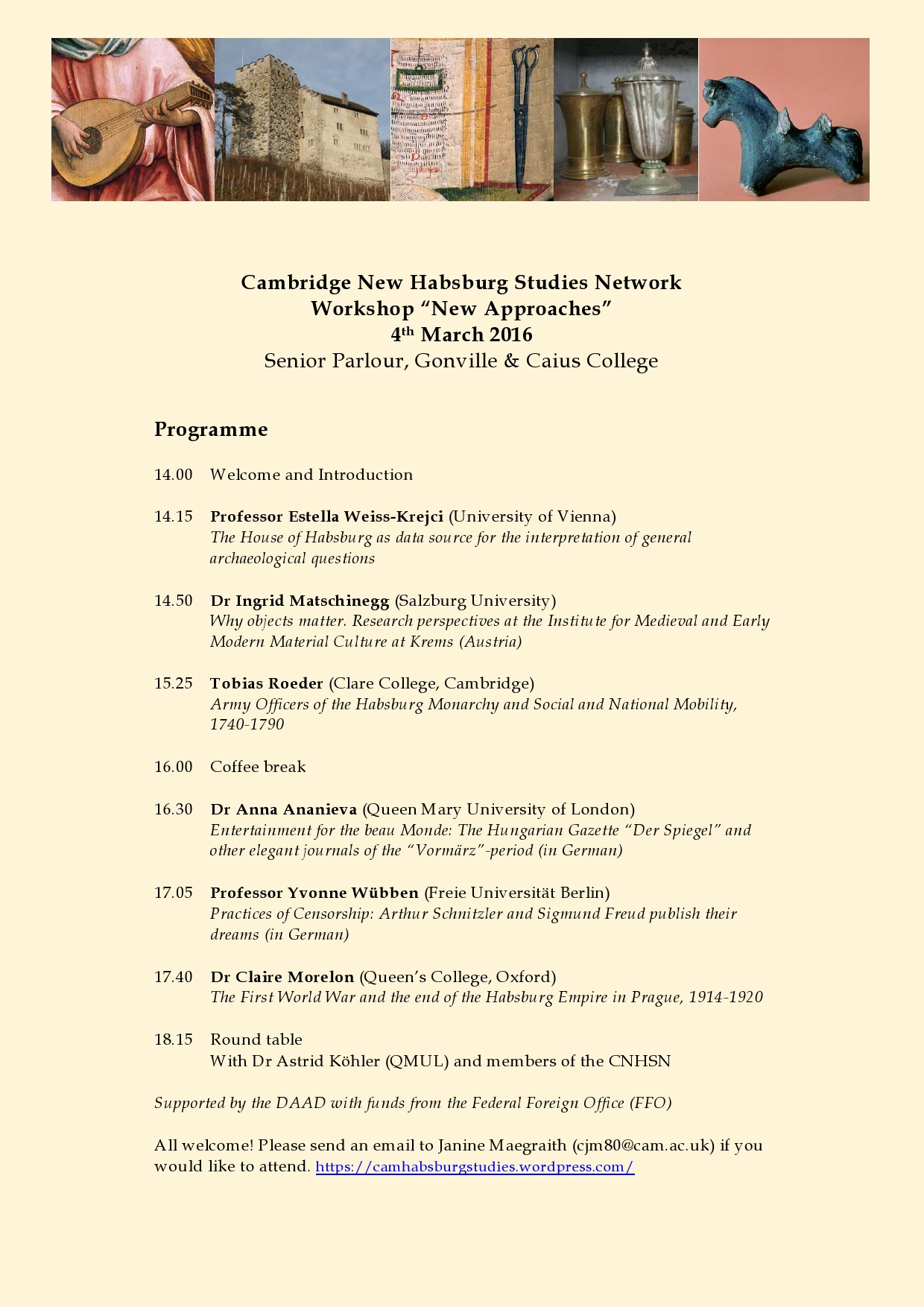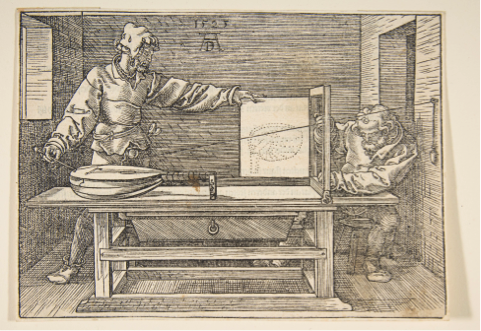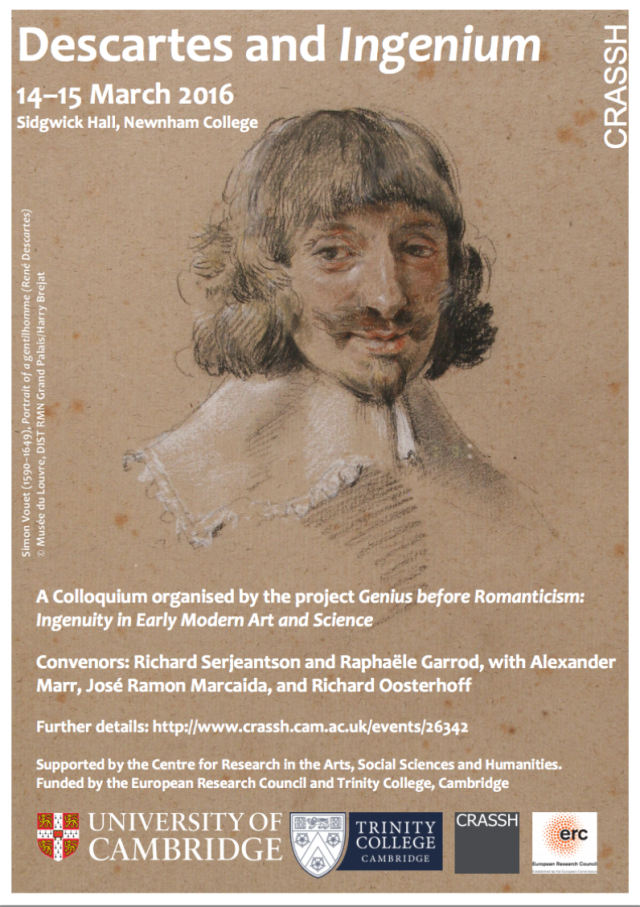Welcome back! Here are some events happening around Cambridge this week.
Early Modern British and Irish History Seminar
Wednesday, 27th April at 5.15pm,
Graham Storey Room, Trinity Hall
Harriet Lyon, Elly Robson, and Alice Soulieux-Evans,
‘Historiography panel: Space, Geography and Memory’
Early Modern Economic and Social History Seminar
Thursday, 28 April at 5pm in Room 12 of the History Faculty.
We normally have dinner with the speaker afterwards. All welcome.
Beatrice Zucca Micheletto (University of Rouen)
Women, property and work: some considerations of the Italian case
(Turin, 18th century)
Recent research that emphasises differences between northern and southern Europe has argued that in southern countries where a dowry system was widespread, young girls, married women and widows were not encouraged to participate in the labour market since they could merely count on their dowry. On the contrary, I will argue that in pre-industrial Turin, dowry and women’s work were strictly connected. Not only was the dowry often earned by the work of young girls, it was also invested in the family business in which wives and widows played a crucial role as workers. The speaker has recently published Travail et propriété des femmes en temps de crise (Turin, XVIIIe siècle) (2104), and articles in Gender & History (2015); The History of the Family(2014), and Feminist Economics (2013).
Professor Lyndal Roper to give the 2016 Lee Lecture
We are delighted to announce that Lyndal Roper, Regius Professor of History at Oxford, will give the 2016 Lee Seng Tee Distinguished Lecture on 28 April at 6.15pm, in the Lee Hall.
The talk will be on The Battle of the Quills: Luther and the German Reformation, the subject of Professor Roper’s current research.
All are welcome to this free talk, which is the ninth lecture in the series. Booking is recommended – please book by email or by calling 01223 335936.
For more information please visit the Lee Lecture Series webpage.
Things: (Re)Constructing the Material World
Paint
27 April 2016, 12:00 – 14:00
Seminar Room SG1, Alison Richard Building
Christine Slottved Kimbriel (Assistant to the Director, Hamilton Kerr Institute, Cambridge)
Dr Jose Ramon Marcaida (CRASSH, Genius before Romanticism, Cambridge)

 More information
More information 



